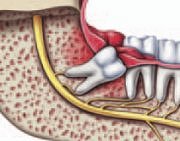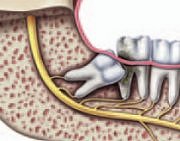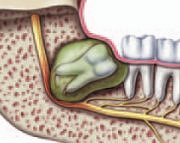Wisdom Teeth
Worry-free Wisdom Tooth Extraction
By the age of 18, the average adult has 32 teeth - 16 teeth on the top and 16 teeth on the bottom. Each tooth in the mouth has a specific name and function. The teeth in the front of the mouth (incisors, canine and bicuspid teeth) are ideal for grasping and biting food into smaller pieces. The back teeth or molars are used to grind food up into a consistency suitable for swallowing.
Wisdom Teeth are the third and final set of molars that most people get in their late teens or early twenties. In most people, Wisdom Teeth erupt abnormally or remain impacted.
Why should I remove my Wisdom Teeth?
The extraction of Wisdom Teeth is necessary when they do not properly erupt into the mouth. They may grow sideways, partially emerge from the gum and even remain impacted - trapped beneath the gum and bone. Impacted teeth can take many positions in the bone as they attempt to find a pathway that will allow them to erupt successfully. Poorly positioned impacted teeth can cause problems:
Removal of the offending impacted tooth or teeth usually resolves these problems. Early removal is recommended to avoid future problems and to decrease the surgical risk involved with the procedure. Studies have shown that early evaluation and treatment of Wisdom Teeth result in a superior outcome for the patient. Patients are generally first evaluated in the mid-teenage years by their Dentist or Orthodontist.



